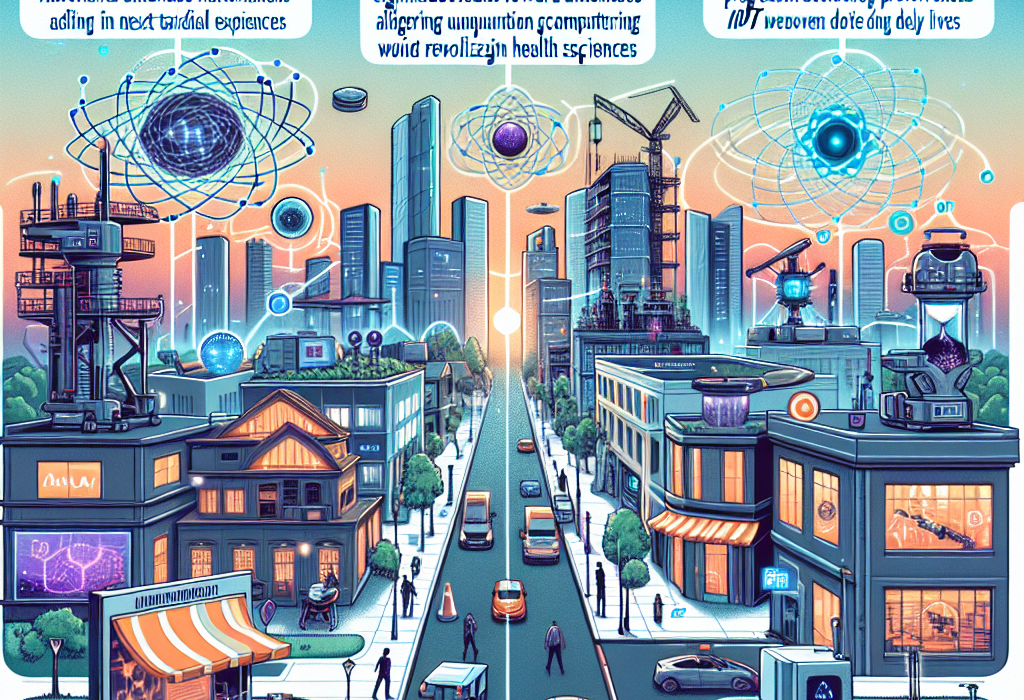Certainly! Here’s an article on the topic:
5 Emerging Tech Trends That Will Define the Next Decade
In an era where technology evolves at a breakneck pace, understanding the imminent technological trends is essential for businesses, governments, and individuals. The next decade promises to be transformative, driven by innovations that will reshape our world. Here are five emerging tech trends that are set to define the upcoming decade.
1. Artificial Intelligence and Machine Learning
Artificial Intelligence (AI) and Machine Learning (ML) have been buzzwords for years, but their full potential is only beginning to unfold. Over the next decade, AI and ML will permeate nearly every industry, leading to significant advancements in automation, data analysis, and user personalization.
Key Developments:
- Autonomous Systems: From self-driving cars to automated drones, autonomous technologies will revolutionize transport and logistics.
- Enhanced Healthcare: AI-driven diagnostics, personalized treatment plans, and robotic surgeries will improve patient outcomes and healthcare efficiency.
- Smart Cities: AI will optimize urban planning, traffic management, and energy consumption, creating more sustainable and livable cities.
2. Quantum Computing
Quantum computing stands at the frontier of technological innovation, promising computational power exponentially greater than that of classical computers. Although still in its infancy, quantum computing will make previously insurmountable problems solvable.
Key Developments:
- Cryptography: Quantum computers will break current encryption methods but will also pave the way for quantum-resistant cryptographic algorithms.
- Drug Discovery: Quantum simulations will accelerate the discovery of new drugs and treatments by modeling complex molecular structures accurately.
- Materials Science: Quantum computing will facilitate the design of new materials with specific properties, leading to advancements in various industries from aerospace to consumer electronics.
3. 5G and Beyond
The rollout of 5G networks marks a significant step forward in connectivity, offering unprecedented speeds and low-latency communication. Beyond 5G, the exploration of 6G is already on the horizon, promising even more transformative capabilities.
Key Developments:
- Internet of Things (IoT): With 5G, the proliferation of IoT devices—ranging from smart appliances to industrial sensors—will dramatically increase, leading to more interconnected and intelligent systems.
- Augmented Reality (AR) and Virtual Reality (VR): Enhanced connectivity will make AR and VR more seamless and immersive, impacting sectors such as education, entertainment, and remote work.
- Edge Computing: 5G will enable edge computing, where data processing occurs closer to the data source, improving response times and reducing bandwidth usage.
4. Biotechnology and Genomics
Biotechnology and genomics are on the verge of breakthroughs that could change the face of medicine, agriculture, and even environmental conservation. Genetic editing tools like CRISPR technology are particularly promising.
Key Developments:
- Personalized Medicine: Advances in genomics will lead to highly personalized treatments based on an individual’s genetic makeup, drastically improving healthcare outcomes.
- Gene Therapy: New treatments will emerge for genetic disorders, potentially curing diseases that are currently deemed incurable.
- Agricultural Innovation: Genomic editing can produce crops that are more nutritious, resistant to pests, and adaptable to climate change, ensuring food security for a growing global population.
5. Advanced Robotics
Robotics has made significant strides in recent years, and this trend will continue, with robots becoming more capable and integrated into daily life and work environments.
Key Developments:
- Industrial Automation: Advanced robotics will further streamline manufacturing processes, increasing efficiency and reducing the need for human intervention in hazardous environments.
- Service Robots: From automated customer service agents to domestic helpers, robots will start taking on more roles in service-based industries and households.
- Exoskeletons: Wearable robotic suits will enhance human capabilities, aiding in rehabilitation, enabling disabled individuals to gain mobility, and assisting workers in physically demanding tasks.
Conclusion
As we look to the future, these emerging technology trends offer a glimpse into a world where intelligent systems, unprecedented computational power, seamless connectivity, and genetic advancements become the norm. The implications are vast, influencing not only technological landscapes but also societal structures, ethical standards, and global economies. Staying ahead of these trends will be crucial for harnessing their benefits and navigating the challenges they present.
By embracing and preparing for these advancements, we can anticipate a decade of unprecedented growth and transformation, propelling humanity to new heights.

